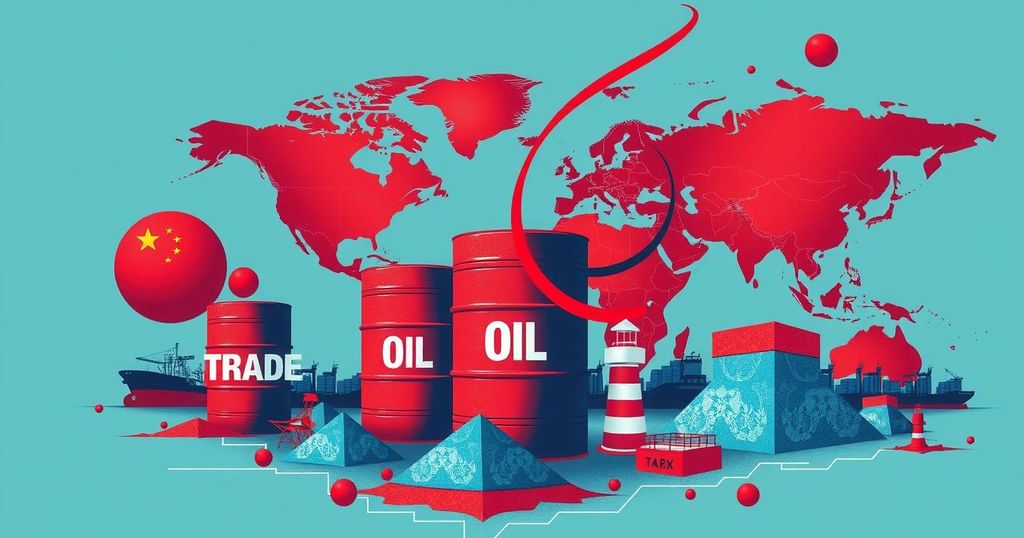Conflicts
AP PEACE, AU, AUNG SAN SUU KYI, AUSTRALIA, CANADA, CIVIL WAR, CUBA, EUROPE, EUROPEAN UNION, HUMAN RIGHTS, HUMAN RIGHTS VIOLATIONS, HUMANITARIAN CRISIS, MYANMAR, NEW ZEALAND, NORTH AMERICA, NORWAY, OCEANIA, REFUGEES, SOUTH KOREA, SWITZERLAND, U. N, U. N. DEVELOPMENT PROGRAMME, UNITED KINGDOM, UNITED STATES, VOL, VOLKER TÜRK
Clara Montgomery
Four Years Post-Coup: Myanmar’s Ongoing Humanitarian Crisis and Stalemate
Myanmar has been in turmoil since the military coup four years ago, with ongoing civil war leading to widespread humanitarian crises. The military’s violent repression has inflicted unprecedented civilian suffering and displacement, while international criticism and calls for democratic restoration grow louder. Despite claims of preparing for elections, legitimacy remains in question due to the military’s continued oppression of dissent.
Four years ago, Myanmar’s military executed a coup, resulting in an ongoing civil war and a dire humanitarian crisis. Despite international calls for change, prospects for peace remain grim, as tensions persist between the military regime and major opposition factions fighting against it. The United Nations reported that nearly half of the population now lives in poverty, further exacerbating the situation.
The U.N. Human Rights Office highlighted an alarming rise in violence against civilians, marking the highest civilian death toll since the military’s assumption of power. Retaliatory airstrikes and artillery attacks have forced thousands into military conscription, leading to widespread displacement and humanitarian access denial. U.N. human rights chief Volker Türk noted, “After four years, it is deeply distressing to find that the situation on the ground for civilians is only getting worse by the day.”
In response to the military coup, the United States, United Kingdom, European Union, and other nations condemned the actions of the military government and called for the release of political prisoners, including Aung San Suu Kyi. According to these countries, about 20 million individuals are in need of humanitarian assistance, with nearly 3.5 million internally displaced. The joint statement underscored the unsustainability of the current trajectory for Myanmar and the broader region.
The coup led to widespread protests, which were met with violent repression and gave rise to an armed resistance now classified as a civil war. Ethnic militias and opposition forces control significant territories, whereas the military maintains power over central regions and major cities. The Assistance Association for Political Prisoners has reported over 6,239 killings and 28,444 arrests since the coup, with the actual death toll likely underestimated.
Aung Thu Nyein, director at the Institute for Strategy and Policy-Myanmar, assessed the situation as precarious and unfavorable for peace and development. He stated that the military’s claimed sovereignty is diminishing, suggesting potential shifts in the country’s territorial integrity. The military has faced significant losses on the battlefield, particularly against ethnic armed groups who have captured strategic locations.
As the military seeks a political solution through planned elections, many critics perceive this as an undemocratic facade. The regime’s recent extension of a state of emergency adds to concerns about the legitimacy of any forthcoming elections. Tom Andrews, a U.N. rapporteur, asserted, “Governments should dismiss these plans for what they are – a fraud,” as ongoing arrests of opposition members and limitations on free speech undermine any electoral process.
In summary, Myanmar’s political landscape remains severely impacted by the military coup four years ago, giving rise to an escalating civil war and a humanitarian crisis affecting millions. The commitment of the military government to hold elections appears questionable in light of its oppressive tactics against dissent. International bodies continue to express concern over human rights violations, indicating a need for urgent intervention and support for the suffering civilian population.
Original Source: www.euronews.com








Post Comment